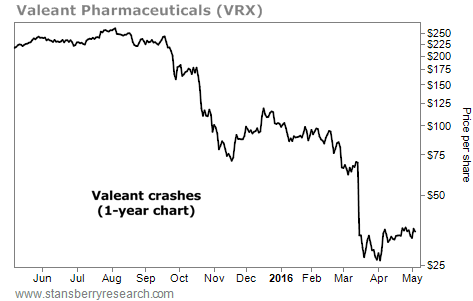| Home | About Us | Resources | Archive | Free Reports | Market Window |
The Eight-Step Plan to Overcoming Your Biggest FearsBy
Friday, May 6, 2016
When business writers talk about why so few people become entrepreneurs, they cite "fear of failure" as the No. 1 challenge.
I agree. Fear of failing is a real factor. But to overcome it, you need to figure out what it means in more specific terms.
When I feel trepidation about starting a venture, I'm not worried about something as abstract as "failure."
I worry mainly about three things...
I sometimes worry I don't have the knowledge or skills to make the idea successful. I worry I might lose all the time and money I'm about to invest in the idea. And I worry if word gets out I've had to close, businesspeople will think I'm a fool. (Especially the people who doubted my idea in the first place.)
Bestselling author Seth Godin talks about that first fear. He says most people who buy books on entrepreneurship never get beyond the dreaming stage because "deep down inside, they don't think they have what it takes to succeed."
I don't know if that's the most common fear of starting a business. I wish it were. But I'm afraid too many entrepreneurs have the opposite problem.
They don't realize they don't have what they need to succeed.
If you have that fear, you should respect it... because nine times out of 10, it's valid.
My No. 1 rule of wealth-building is to invest only in what you know. If you think you might not know enough or have the right resources, you probably don't.
The solution to that fear is to put your plan on hold and acquire the experience to know what you need to know.
If your fear is being shamed by a failure, you can – and should – move forward. You can overcome this kind of fear by simply imagining the worst possible outcome and visualizing being emotionally OK with that.
Another thing you can do is be a bit humble when you're announcing your venture.
Rather than bragging about all the money you'll be making, keep the claims small and try a little self-deprecating humor. "This is probably a terrible idea, but I'm going to try it."
If your fear is losing your time and money, you need to follow the protocol I outline in The Reluctant Entrepreneur...
Fear is a good and useful emotion. Successful entrepreneurs don't deny it. They overcome it sensibly and cautiously by taking baby steps and proving the optimal selling strategy before going big. If you have what it takes, don't let either the fear of embarrassment or the fear of losing time and money get in your way. Keep your risk low and your dreams high.
Regards,
Mark Ford
Further Reading:
Get more of Mark's timeless wisdom here:
How Every Decision Can Make You Richer – or Poorer
"Almost every event in your life is an opportunity for you to become richer." Grow Your Wealth for Decades Without a Single Losing Year
"You don't have to be a sophisticated investor to avoid making big investment mistakes. You can do so by applying a little bit of common sense." Market NotesTHIS DRUG STOCK HAS FALLEN OFF A CLIFF Today's chart highlights the fall from glory for Valeant Pharmaceuticals (VRX)...
Lately, the controversial drug company has been one of the major stories in the market. It made headlines last year when the Wall Street Journal criticized it for buying the rights to existing drugs and treatments, then immediately raising the prices.
Then in the fall, the company's accounting and business practices were called into question... and some folks alleged outright fraud. Well-known short-seller Andrew Left even went as far as to call it a "pharmaceutical Enron."
The bad headlines have caused the stock to plummet. In mid-March, shares fell 50% in a single trading session after the company missed the deadline to file its annual 10-K form. (It finally filed six weeks late.) Last week, investing legend Warren Buffett called the company "enormously flawed." And as you can see, the market agrees. Shares are down more than 85% over the last year alone, and don't appear to be recovering anytime soon...
 |
Recent Articles
|



